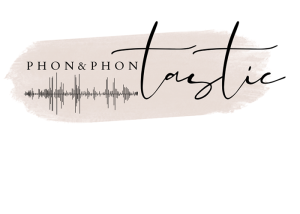The Department of Contemporary English and Multilingualism and the Experimental Phonology and Phonetics Lab cordially invite everyone to our upcoming meeting.
Our presenter will be our own Iryna Kravchuk, MA with a talk titled, “Cognitive performance of multilinguals: A comparison of accented speech comprehension and attention allocation efficiency”.
Date: Wednesday, 4.06.2025
Time: 11:30 AM
Location: Room 211 (Collegium Heliodori Święcicki)
Abstract
Studies reporting advantages in bilingual cognitive performance have faced criticism for limited generalizability and publication bias (Kroll & Bialystok, 2013; V on Bastian et al., 2016). Addressing this critique, Bialystok & Craik (2022) argued that bilinguals may not have more cognitive resources, but they use them differently, especially in complicated tasks requiring efficient attention allocation. In the comparisons between bilinguals and trilinguals, no performance difference in behavioral tasks has been reported (Chung-Fat-Yim et al., 2020), however, the two groups compared in those studies were defined based on different characteristics. Besides, these studies often used simple cognitive tasks and lacked consistency in targeted psychological mechanisms.
In the current contribution, I will present a project exploring the link between multilingual experience and language perception, focusing on accented speech comprehension and cognitive performance. To address the main research questions, functional monolinguals, bilinguals, and trilinguals of Polish, English, and German will be compared. Forty participants per group, recruited based on self-reported language experience, will complete a language history questionnaire (LHQ3, Li & Zhao, 2020), a lexical decision task (LDT), and a task-switching paradigm (Xie & Kurumada, 2023; Mora, 2015). Accented speech comprehension testing will be presented as a speech-based, cognitively demanding task targeting attention allocation (Cristia et al., 2012). A task-switching paradigm will be discussed as a behavioral method of attention allocation measurement, while a lexical decision task and sentence comprehension testing as a measurement of accented speech comprehension. Additionally, I will report on the foreign accent rating study conducted to prepare material for accented speech comprehension testing and on the pilot study carried out so far.
Selected References
- Bialystok, E., & Craik, F. I. (2022). How does bilingualism modify cognitive function? Attention to the mechanism. Psychonomic Bulletin & Review, 29(4), 1246-1269.
- Cristia, A., Seidl, A., Vaughn, C., Schmale, R., Bradlow, A., & Floccia, C. (2012). Linguistic processing of accented speech across the lifespan. Frontiers in psychology, 3, 479.
- Kroll, J. F., & Bialystok, E. (2013). Understanding the consequences of bilingualism for language processing and cognition. Journal of cognitive psychology, 25(5), 497-514.
- Von Bastian, C. C., Souza, A. S., & Gade, M. (2016). No evidence for bilingual cognitive advantages: A test of four hypotheses. Journal of Experimental Psychology: General, 145(2), 246.
